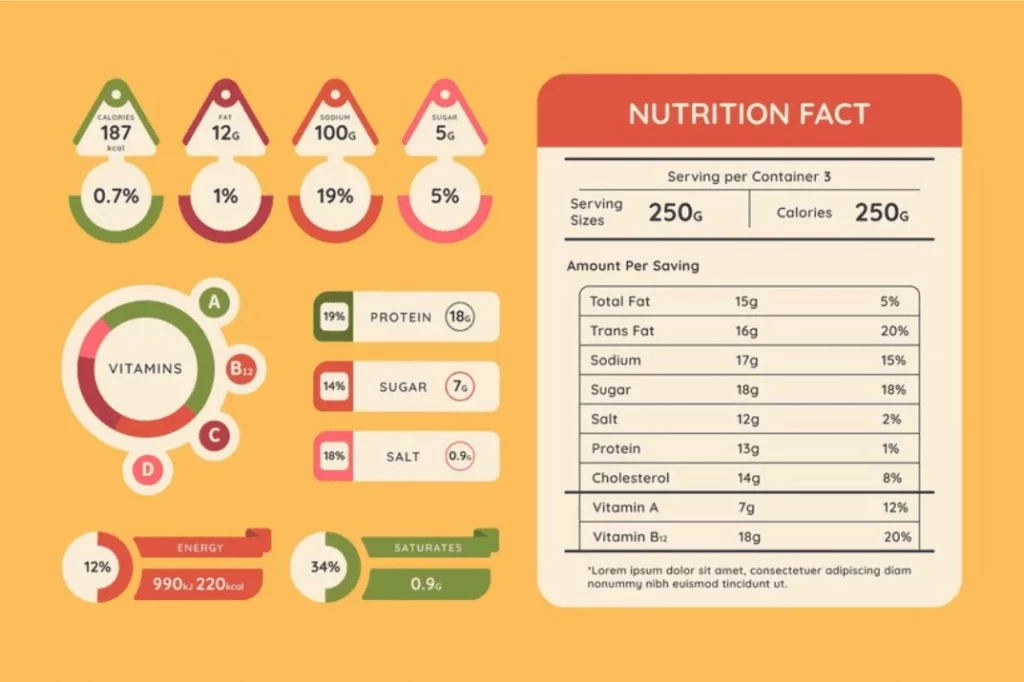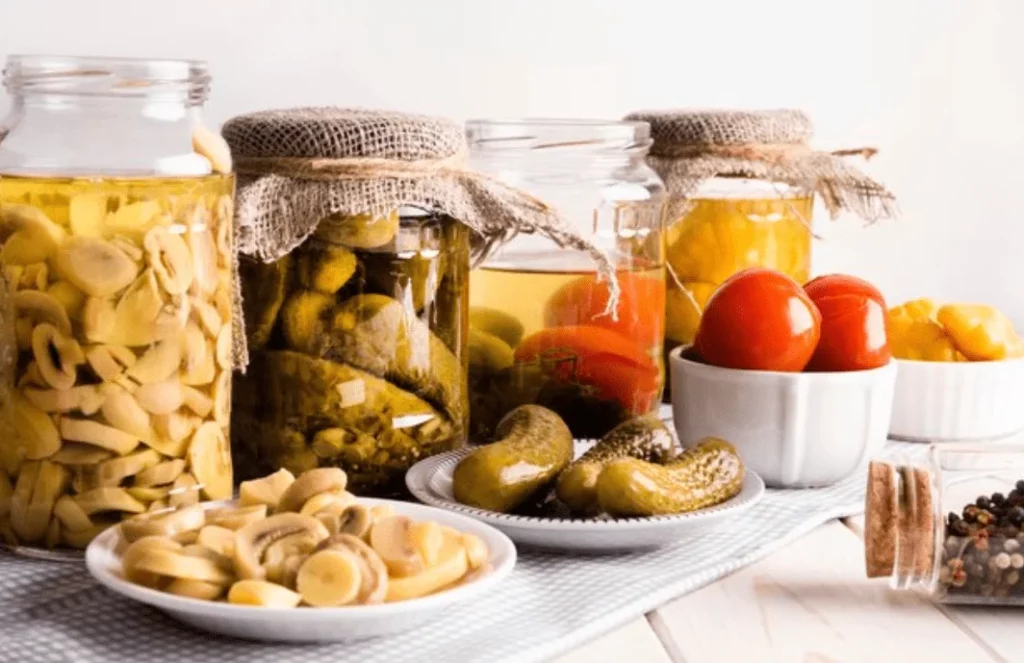If you were asked to make a healthy choice between canned and fresh foods, which would you choose? Contrary to popular belief, canned foods can sometimes even be healthier than fresh foods. But this simple question about whether or not canned foods are healthy cannot be awarded a simple answer because more factors determine the answer. Throughout this post, we’ll explore the different sides of the coin to determine once and for all if canned foods are healthy and how.
Are canned foods processed?
Let’s start here, shall we?
To start with, the National Health Service (NHS), UK expressed that if the raw state of an agricultural product is modified in any form at all, it’s processed. To further elaborate on this definition, the NHS provided some examples of processed foods and canned foods were listed after freezing and before cooking or drying. But does that mean that the nutrients have been tampered with?
The nutritional value of canned foods

What makes a food ‘canned’ is its method of preservation. It involved washing (or cleaning) the food product, canning, and heating the can at high temperatures to kill off any bacteria.
In other words, the process of canning does not (or should not) involve the application of unhealthy chemical substances labeled harmful to human health.
For instance, canning carrots is washing thoroughly, fitting them inside a can with water, and then sealing the can tightly. After this, the can would then be brought under a very high temperature, and then it’d be cooled quickly.
With this preservation method, the nutritional value of the carrots is intact, making them just as healthy and nutritious as fresh carrots.
Cases where canned foods may be better.
Certain foods, like corn or tomatoes, may be better canned than fresh. Here’s why:
Cooking these food types at high temperatures enhances their antioxidant release, making canned variants of these foods potentially richer in antioxidants than their raw counterparts, but not in all cases.
Cases where canned foods may not be the best.
It may be best to avoid foods containing water-soluble vitamins, those stored in salty water, or those not stored in their juice. Food with water-soluble vitamins loses its nutritional value immediately after being pressed at high temperatures. At the same time, excess sodium does more harm than good for the body.
Other forms of canned foods that should be avoided are:
Foods with dented, cracked, or leaking cans
Taking context from the canned process, having a dented, cracked, or leaking can corrupt the sterile environment that the heating has created. Usually, the inside of the can has been ridden with bacteria. But immediately, they can become compromised; the food potentially gets contaminated and unsafe to eat.
Canned foods that contain BPA
Bisphenol A (BPA) is an industrial chemical used to make plastics and cans that are later employed in packaging foods and beverages. While not every company employs BPA, it’s scary to admit that many do. But that’s not the worst of it.
BPA plays a dangerous role in the body since it acts similarly to estrogen. Multiple exposure to BPA increases the chance of becoming obese and, most of all, reduces fertility chances. BPA also negatively affects the nerves and the bodily immune systems. So, what you need to do is look for the brands that specifically boast BPA-free.
Foods stored in sugar or salt
Similarly, some companies store the foods in sweetened or salted liquids to keep the taste or kill off bacteria. However, nutritionists have advised that you stay away from those. The only exception may be slightly salted canned soups.
Are canned foods healthy for diabetics?

Seeing as we just talked about the possibility of high sodium or sugar content in some canned foods, it’s just right to ask. Here’s the answer:
Run from canned foods if you can.
Doctors already advise diabetic patients to cut down on their consumption of carbohydrates, sugar, and fast food, which is what canned foods are all about. However, if needed, they can munch on canned veggies only in minimum quantities.
Are canned foods healthy for weight loss?
It is not advisable to eat canned food when you want to lose weight. Instead, it would help if you went for frozen and drained fruits; fresh food or fruit is the best option. Most processed foods lose some of their nutrients during processing.
Canned foods are convenient and easy to get, but choosing the ones packed in juice or water is essential. Syrup-packed canned food mainly contains high sugar and calories, which is not helpful for weight loss. Check the health benefits of canned food before consumption: its nutritional content, reading the label to see if it doesn’t contain sugar or syrup, and, of course, the expiration date.
Does canned food cause cancer?
Cans are produced from tin-covered steel; some countries may use lead solders to make the containers. Also, the interior of cans is usually covered with plastic to extend the shelf life of their contents, and the plastic can sometimes contain BPA.
While lead in food can result in food poisoning, BPA also has its side effects (if present). Nonetheless, there’s no conclusive information on the connection between lead, BPA, and cancer.
Advantages and disadvantages of canned food

Here are the advantages and disadvantages of canned food.
Advantages of Canned Foods
- It’s easy to store; it has an extended shelf life: You can store canned food for five years because of its preserved state and extended shelf life. This makes it easy for you to live comfortably where fresh food is unavailable.
- It is convenient: You don’t need to go through extra processes when making fast meals and snacks with canned food. It’s easy to use and makes cooking faster.
- Cost-Effective: Most canned foods are less expensive than fresh food, especially when the food is out of season.
- Nutrition: Most canned foods, like legumes, vegetables, and fruits, have high levels of nutrients. There is this myth that canned foods are not nutritious, but the fact is that canned foods are very nutritious because they still have most of their nutrients intact. Only a few vitamins are lost due to resistance to heat during processing.
Disadvantages of canned Foods
- Exposure to BPA: Canned foods may likely have traces of BPA, a chemical connected to different health problems, like heart disease and diabetes.
- Possible health risks: This is very rare, but canned food that is not well processed can contain harmful bacteria that cause food poisoning.
- Salt, sugar, and preservatives: A few canned foods may contain high sodium and sugar content with preservatives, which can indirectly lead to health problems.
Is it OK to eat canned foods every day?
Eating canned food daily is less healthy than fresh food, but it’s still healthy.
Interestingly, canned food was invented because the British and French navies experienced significant malnutrition. Since their food spoiled quickly, they began using tin plates—tin-coated cans—to keep it fresh. They cook the food in the can so that the bacteria inside are killed, and no bacteria can enter.
This resulted in a significant drop in mortality for their sailors. Laboratory tests confirm that most of the nutrients are preserved as well. Moderate consumption of canned foods is usually safe, but looking for BPA and lead cans is essential. Also, most canned foods have a high sodium content, so you should be conscious of sodium intake.
The healthiest canned foods
- Beans: Canned beans are pinto, red kidney, black beans, garbanzo, and lima beans.
- Minced tomatoes: Canned minced tomatoes are not just nutritious, but they’re also vital in many recipes.
- Chopped green chiles: Canned green chiles have a nice flavor and do an excellent job as garnishes.
- Baby corn: Sometimes, corn is avoided because of its starch. However, baby corn is considered a non-starchy vegetable, which makes it suitable for consumption.
- Olives: Canned olives contain high sodium, a vital nutrient that should be consumed in manageable quantities.
Conclusion
Canning is one of the best ways to preserve food because it doesn’t allow the entry and buildup of dangerous bacteria that cause health issues.
Canned foods are less expensive than fresh food, cook faster, and are rich in nutrients that are beneficial to your health. They have a longer shelf life and are used in many recipes.
Remember always to check the label of the canned food to see if it is suitable for nutrition.